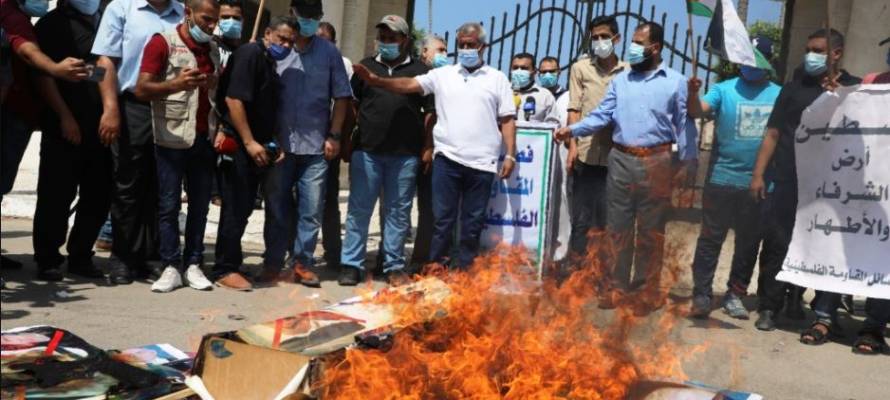“This day will be added to the Palestinian calendar of pain and Arab calendar of defeats,” said Palestinian Authority Prime Minister Mohammad Shtayyeh.
By Baruch Yedid, TPS
Palestinian Authority (PA) officials, including Prime Minister Mohammad Shtayyeh and Minister of Civil Affairs Hussein al-Sheikh, called the signing of the peace agreement in Washington a “black day.”
PA chief negotiator with Israel Saeb Erekat said he would not be surprised if it turns out that Bahrain and the United Arab Emirates (UAE) signed the maps of Israel’s “annexation” in Judea and Samaria.
Shtayyeh said that “this day will be added to the Palestinian calendar of pain and Arab calendar of defeats,” and he accused the Arab League of being a “symbol of Arab ineptitude.”
Some in the Palestinian hierarchy likened the ceremony to the 1982 Sabra and Shatila massacre in Lebanon,while others condemned the “decline of the Arab peoples” for allowing the Palestinian problem to be harmed.
The United National Headquarters, recently established by all Palestinian terrorist organizations at a conference between Ramallah and Beirut, is now leading the PA protests.
In Gaza, pictures of the rulers of the UAE and Bahrain and their flags were burned, but protestors in the PA refrained from doing so, likely following a presidential ban.
Ismail Haniya, the leader of Hamas, called PA head Mahmoud Abbas from the PLO headquarters in Beirut and talked with him about the need to establish a Palestinian front in the face of recent developments.
Hamas has been warning against Israel’s alleged use peace agreements to harm the Al-Aqsa mosques, following news that the Emirates’ rulers are planning a visit to the holy site.
The Islamic Jihad terror group said that the Abraham Accords does not constitute a peace agreement but, rather, a military alliance with the Zionist enemy.
Meanwhile, in Bahrain and the Emirates, a holiday atmosphere could be felt. Bahrain’s Interior Minister Rashid bin Abdullah Al Khalifa said normalization of relations is a means of defending Bahrain from the Iranian hegemony that has threatened to undermine national security. He also said that while the Palestinians are an Arab issue, Bahrain is a crucial issue.
Emirati Foreign Minister Anwar Gargash said that the UAE has crossed the psychological barrier to full-fledged relations and even expressed hope that a large Israeli community would exist in the Emirates.
Responding to threats being issued by Iran, Turkey, and the Houthis in Yemen, and Bahrain being called “Israel’s fools,” a Bahraini publicist said that “Israel is a more respected country than the regimes in Turkey, Iran, and Qatar and all the movements of political Islam.”
